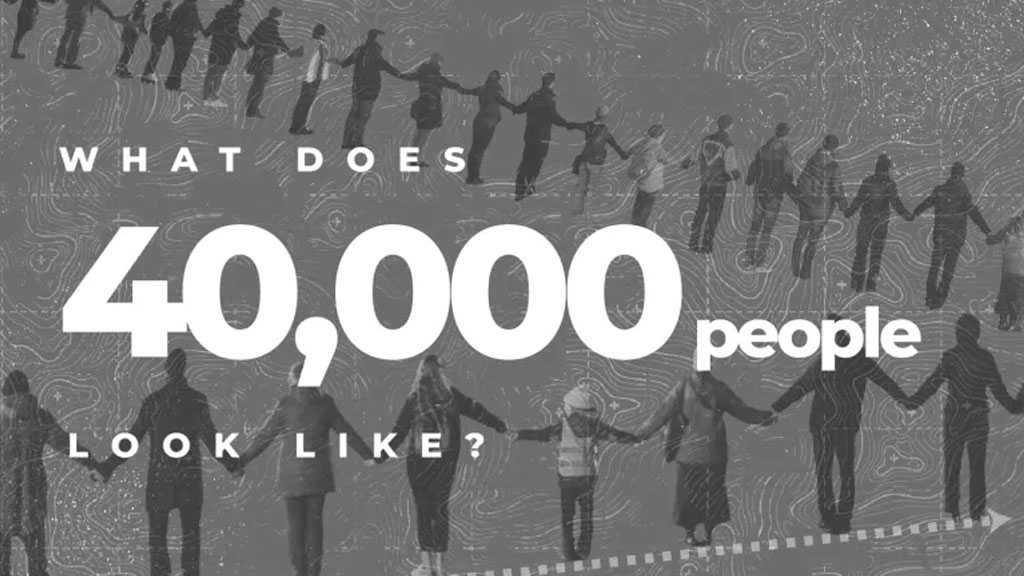
Majority of Americans want talks with Hamas, Hizbullah...

Americans concerned about loss of world standing
Source: AFP, 22-09-2008
WASHINGTON - Foreign policy could play a big role in November's presidential election according to a new poll that suggests 83 percent of Americans are most concerned about improving the nation's standing in the world.
The Chicago Council on Global Affairs poll also showed majority support for Washington to take a new tack in foreign policy by talking to 'enemies' like the leaders of Cuba, North Korea, Iran, Myanmar (Burma), Hamas and Hizbullah.
Such a stand appeared closer to that of Democratic candidate Barack Obama than that of his Republican rival John McCain.
Bipartisan concern about America's standing in the world topped the list of 14 goals presented in the survey to be officially released on Monday, even higher than protecting the jobs of US workers (80 percent).
The survey was conducted in July, before the collapse of investment giant Lehman Brothers, the unprecedented government rescue of insurer American International Group and the seizure of mortgage-finance giants Fannie Mae and Freddie Mac sparked market panic.
Eighty-three percent of Americans -- including 81 percent of Republicans and 88 percent of Democrats -- think that improving their nation's standing internationally should be a "very important" foreign policy goal, the poll said.
The survey asked respondents to comment on whether they thought their government's ability to achieve its goals abroad had increased, decreased or remained the same.
"Fifty-three percent say that is has decreased, while only 10 percent say it has increased.
Thirty-six percent say it has stayed about the same," according to the Chicago Council survey.
Republicans were more likely than Democrats to say it had stayed the same.
But such concerns were not breeding new isolationism, it added. Americans remained strongly committed to have Washington retain an active role in world affairs and maintain its global military presence.
A majority of Americans also backed US government talks with leaders of unfriendly governments and groups listed by the US and other governments as (so-called) 'terrorists'.
It listed the "percentage who say US government leaders should or should not be ready to meet
and talk with leaders of countries and groups with whom the US has hostile or unfriendly relations."
For Cuba, 70 percent say they should be ready versus 25 percent who say they should not; for North Korea, 68 percent versus 28 percent; for Iran, 65 percent versus 30 percent; for Myanmar, 63 percent versus 30 percent; for Zimbabwe, 61 percent versus 34 percent; for the Palestinian movement Hamas, 53 percent versus 41 percent; for the Lebanese Hizbullah, 51 percent versus 43 percent.
The survey also found that Americans considered it "very important" to secure adequate supplies of energy (80 percent), prevent the spread of nuclear weapons (73 percent), combat international terrorism (67 percent), control and reduce illegal immigration (61 percent), maintain superior military power worldwide (57 percent).
A vast majority of the remaining respondents considered the same goals to be "somewhat important," while between two percent (US standing in the world) and eight percent (controlling immigration) considered them "not important."
If responses are combined for "very important" or "somewhat important" in three categories, some 91 percent ticked combating world hunger, 82 percent marked limiting climate change, and 79 percent flagged strengthening the United Nations.
Respondents were pretty much evenly split in those three categories.
Americans either considered it "somewhat important" or "very important" to promote international trade, promote and defend human rights in other countries, protect weaker nations against foreign aggression, and help bring a form of democratic government to other nations.
Conducted by Knowledge Networks from Menlo Park California, the survey was carried out between July 3 and July 15 with a total sample of 1,505 American adults. The margin of error is between plus or minus 3.7 percent and plus or minus 2.5 percent.
Source: AFP, 22-09-2008
WASHINGTON - Foreign policy could play a big role in November's presidential election according to a new poll that suggests 83 percent of Americans are most concerned about improving the nation's standing in the world.
The Chicago Council on Global Affairs poll also showed majority support for Washington to take a new tack in foreign policy by talking to 'enemies' like the leaders of Cuba, North Korea, Iran, Myanmar (Burma), Hamas and Hizbullah.
Such a stand appeared closer to that of Democratic candidate Barack Obama than that of his Republican rival John McCain.
Bipartisan concern about America's standing in the world topped the list of 14 goals presented in the survey to be officially released on Monday, even higher than protecting the jobs of US workers (80 percent).
The survey was conducted in July, before the collapse of investment giant Lehman Brothers, the unprecedented government rescue of insurer American International Group and the seizure of mortgage-finance giants Fannie Mae and Freddie Mac sparked market panic.
Eighty-three percent of Americans -- including 81 percent of Republicans and 88 percent of Democrats -- think that improving their nation's standing internationally should be a "very important" foreign policy goal, the poll said.
The survey asked respondents to comment on whether they thought their government's ability to achieve its goals abroad had increased, decreased or remained the same.
"Fifty-three percent say that is has decreased, while only 10 percent say it has increased.
Thirty-six percent say it has stayed about the same," according to the Chicago Council survey.
Republicans were more likely than Democrats to say it had stayed the same.
But such concerns were not breeding new isolationism, it added. Americans remained strongly committed to have Washington retain an active role in world affairs and maintain its global military presence.
A majority of Americans also backed US government talks with leaders of unfriendly governments and groups listed by the US and other governments as (so-called) 'terrorists'.
It listed the "percentage who say US government leaders should or should not be ready to meet
and talk with leaders of countries and groups with whom the US has hostile or unfriendly relations."
For Cuba, 70 percent say they should be ready versus 25 percent who say they should not; for North Korea, 68 percent versus 28 percent; for Iran, 65 percent versus 30 percent; for Myanmar, 63 percent versus 30 percent; for Zimbabwe, 61 percent versus 34 percent; for the Palestinian movement Hamas, 53 percent versus 41 percent; for the Lebanese Hizbullah, 51 percent versus 43 percent.
The survey also found that Americans considered it "very important" to secure adequate supplies of energy (80 percent), prevent the spread of nuclear weapons (73 percent), combat international terrorism (67 percent), control and reduce illegal immigration (61 percent), maintain superior military power worldwide (57 percent).
A vast majority of the remaining respondents considered the same goals to be "somewhat important," while between two percent (US standing in the world) and eight percent (controlling immigration) considered them "not important."
If responses are combined for "very important" or "somewhat important" in three categories, some 91 percent ticked combating world hunger, 82 percent marked limiting climate change, and 79 percent flagged strengthening the United Nations.
Respondents were pretty much evenly split in those three categories.
Americans either considered it "somewhat important" or "very important" to promote international trade, promote and defend human rights in other countries, protect weaker nations against foreign aggression, and help bring a form of democratic government to other nations.
Conducted by Knowledge Networks from Menlo Park California, the survey was carried out between July 3 and July 15 with a total sample of 1,505 American adults. The margin of error is between plus or minus 3.7 percent and plus or minus 2.5 percent.
Comments



